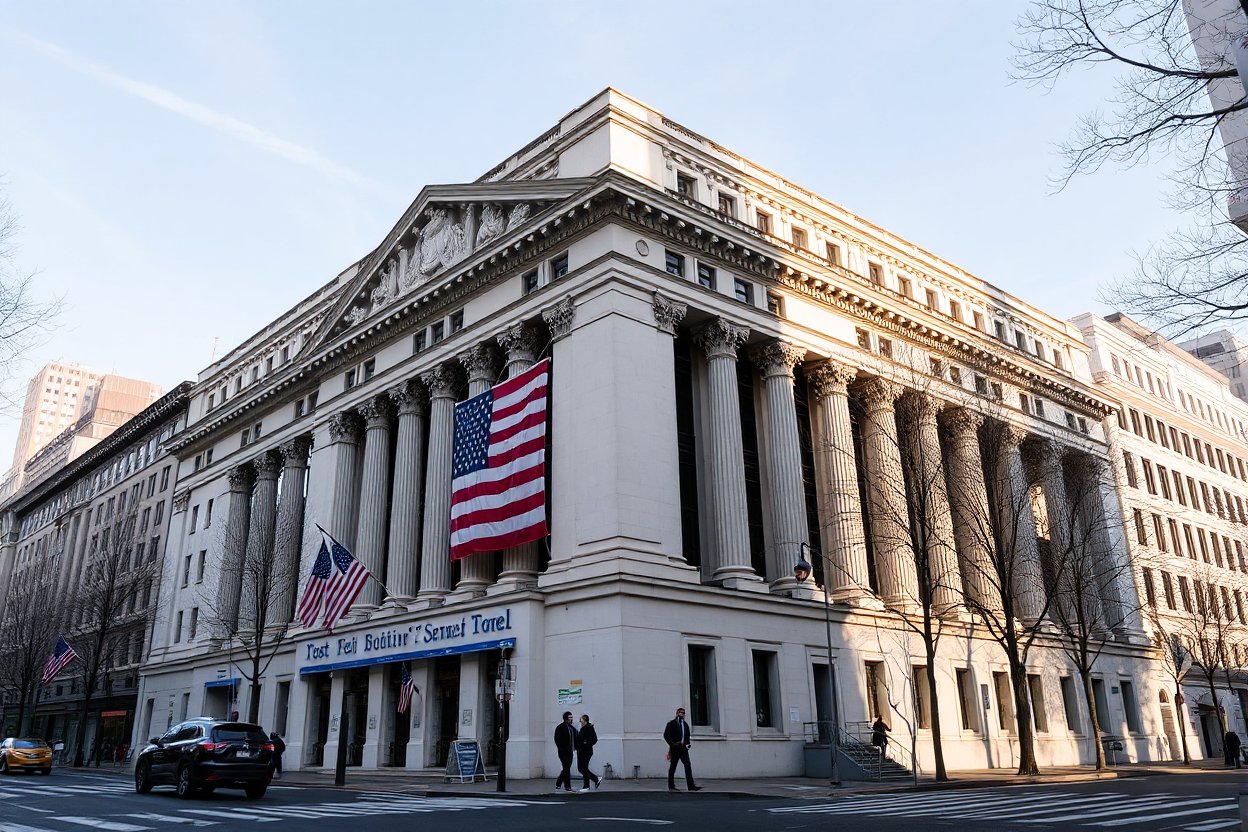Tesla Stock Drops Sharply, Erasing Gains Amid Market Uncertainty
Tesla has encountered a remarkable fall in stock price, erasing the substantial gains collected from the post-election rally. As of December, the company’s shares have tumbled down more than 50% from their highest point, showing general market instability and company-specific difficulties.
keep reading
Post-Election Surge and Subsequent Decline
Since President Donald Trump was re-elected in November 2020, Tesla’s stock price has increased as investors trusted that the government would implement green-friendly policies for the electric vehicle (EV) industry. The company’s affiliation with the administration, primarily through CEO Elon Musk‘s activity, triggered confidence in green market regulations and greater market reach.
Nevertheless, the renewal of the optimism was quick, and the company has been facing falling trends emanating from an 8-percent drop last month, the most immense fall since the election. This decrease will eliminate 91% of the rally gained this stock after the election.
Factors Contributing to Decline
There are myriad reasons for the sharp decline in Tesla’s stock; the prime among them are:
The concern of an economic slowdown
A widespread fear of the economy’s possible recession led to an increased risk on the securities market. The NASDAQ index plunged, with Tesla also being in a defensive position, and the value of junk bond investors at risk. The index has not fallen this dragged down in the past half a year, and the worsening investor sentiments are pretty obvious.
Trade Policy Uncertainties
The tariff policies of President Trump have created unclear trading terms & therefore, concerns of a trade war have arisen. In such situations, the economy is expected to be affected, and uncertainty is created, which, in turn, damps the consumer’s consumption and business activities.
Weak Financial Performance
Elon Musk’s company, Tesla, has registered poor fourth-quarter deliveries and earnings, which are now affecting the whole growth and profitability.
Global Sales Challenges
Furthermore, it has dropped the product prices among other video game consoles, resulting in a fall in the company’s profit margin. The company has used price as a marketing strategy and reduced prices. As a result, they would have made lower profits due to losses in the price game. Elon Musk’s Political Involvement: Musk’s presence within the Trump administration held both ends. In the beginning, it was slated to be part of his image. The picture changed, and public reaction came into play. People were upset over this as they were unsure if Elon Musk was the only one running the company.
Market Reactions and Analyst Perspectives
The Tesla crisis, which the company experienced, resonated with the market quite well. The index of the S&P 500 has lowered as much as 2%, making it one of the worst performance weeks in six months, compared to last week’s 3.4% drop. Major banks and tech stocks such as Morgan Stanley, Citigroup, Goldman Sachs, Palantir, and Nvidia reported essential losses on the market.
Tesla is questioning its future, and the market analysts are divided in their answers. Several of them have lowered their price targets, which are blamed on the lack of interest in new models and the possible lower margins for cheaper models in the future.
Others propose that the price going down as of late may be an emblem of the buyers who have the space to get into the stock despite the high valuation, which is a worry. Investor Sentiment and Future Outlook
The trader opinion was additionally weakened by the fear of China’s counter-tariffs on American farm products, leading to the market’s rollercoaster.
The trading tensions worry the forex traders, and the resulting slower economic growth rates have urged them to buy more government bonds. Due to the demand for these government securities, their yield has decreased.
As a result, the trading tensions are worrying since the slowdown of economic growth rates fuels these fears. The fact that a country’s existing account in retaliation has to do with the other country’s deteriorating payment and financial positions is a further problem.
The US fiscal deficit may also be affected by the problems of exchange rate volatility arising from currency shock in trading relations. The sharply increasing demand for safe-haven assets, in this case, government bonds, pushed the bond price downward. This means the buyers paid a lower interest rate when buying the bonds. The yield has dropped due to the extensive demand for those notes.
Instead of the current time, the producers think that Tesla uniquely leads what other market players are offering in the electric car market, and their unique technology makes it the right bet for an investment of a very long period. However, the company’s ability to adapt and to continue steering the competitive front will determine its long-term viability.
Conclusion
Tesla’s stock displayed a decisive change, of course, vacating the achievements of the post-election rush. The repeated scenarios have had an unmistakable cumulative effect in the form of the economic slowdown, trade policy uncertainties, weak financial position, global sales problems, and Elon Musk’s political interference. Tesla has gained price and lost profit as sales growth was overcome by lower margins globally. The multinational battles and falling profit levels hit the stocks while the political engagements of its head and the global sales difficulties intensified its bad performance on the market. While the market is sailing through these difficult times, investors will be on the lookout to witness Tesla’s frequencies throughout times of uncertainties and how well they dodge those challenges.



One thought on “Tesla Stock Plummets as Election Rally Fades, Erasing 91% Gains Amid Market Volatility, Trade War Fears, and Weak Sales”